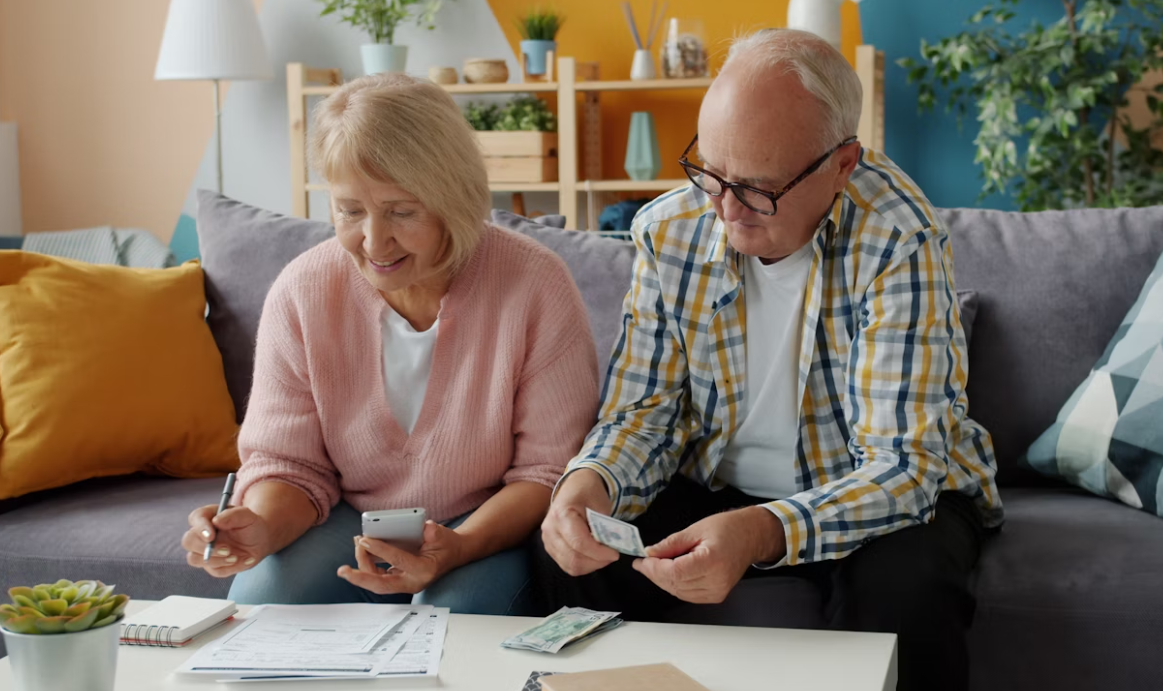
There's money sitting on the table with your name on it. Not buried in some bureaucratic maze or hidden behind complicated paperwork, but available through straightforward government programs designed specifically for people like you. Yet millions of American seniors are walking away from benefits that could ease their financial stress and stretch their retirement dollars significantly further.
Retirement can often feel like walking on a tightrope. You have to balance bills, health care, and daily expenses on a fixed income. What many people don't realize is that there are many straightforward government programs that can help trim expenses. These retiree entitlements aren't buried in fine print. They're accessible aids meant to smooth out those unexpected bumps.
Knowing where to look could help you maximize your senior benefits and stretch those limited dollars further. This isn't about pride or stigma—these are benefits you've earned through decades of work and tax contributions.
Why so many seniors miss out on available help
Before diving into specific programs, it's worth understanding why so many eligible Americans never apply. Sometimes it's misinformation about income limits that seem too low. Other times it's not knowing that owning your home, having a car, or receiving Social Security doesn't automatically disqualify you from most programs.
The reality is that eligibility rules for seniors are often more generous than the general population, with special deductions and higher asset limits. Many programs work together too—qualifying for one often opens doors to others automatically.
"3 out of 5 qualifying older adults aren't enrolled in SNAP"
1. Medicare savings programs
Health expenses might sneak up fast in retirement, but Medicare Savings Programs might step in to cover premiums and more. These state-run initiatives could help low-income seniors afford Parts A and B of Medicare, potentially including deductibles or copays too.
Eligibility often hinges on income (approximately $1,325 monthly for a single person in 2025) and limited assets of around $9,660. However, the exact limits vary by state. For 2025, most states set the income limit at $1,325 monthly for individuals and $1,783 for couples, with asset limits of $9,660 for individuals and $14,470 for couples.
But here's what many people don't know: 12 states including Alabama, Arizona, Connecticut, Delaware, DC, Louisiana, Maine, Mississippi, New Mexico, New York, Oregon, and Vermont don't apply asset limits at all.
The prescription drug benefit alone makes this worth pursuing. If you qualify, you'll pay no more than $12.15 in 2025 for each drug your Medicare drug plan covers. For someone taking multiple medications, this can mean savings of hundreds or even thousands of dollars annually.
2. Low-Income Home Energy Assistance Program (LIHEAP)
Winter chills or summer heat might strain any budget, but the Low-Income Home Energy Assistance Program (LIHEAP) could offer relief. This federal aid may help cover part of your energy bills, fund weatherization, or even assist with repairs to keep your home energy-efficient.
You may qualify if your household income falls below state limits (often automatic if you're on SNAP or Supplemental Security Income) and includes at least one vulnerable member, like a senior. The program operates year-round in most states, though application periods vary. Don't wait for a crisis—many states accept applications for weatherization services throughout the year, which can permanently reduce your energy costs.
3. Supplemental Nutrition Assistance Program (SNAP)
Empty pantries shouldn't be a retirement worry, and the Supplemental Nutrition Assistance Program (SNAP) could stretch your food dollars further. Seniors might receive an EBT card loaded monthly to purchase nutritious items at stores.
Income caps sit at about $1,580 monthly for individuals in 2025, with deductions for medical costs boosting chances. For 2025, seniors can qualify for SNAP if their monthly income is under $15,060 for one person or $20,440 for two people. The asset limit is more generous too—you can have up to $4,500 in assets like money in the bank, and your home, car, and retirement savings don't count toward that limit.
What makes SNAP even more valuable for seniors is the automatic eligibility it provides for other programs. SNAP participants are often automatically eligible for utility assistance programs like LIHEAP, creating a network of support that compounds your savings.
4. Extra standard deduction
Taxes might feel like a distant chore post-retirement, but the IRS's extra standard deduction for those over 65 could lower your bill noticeably. It tacks on $1,600 for singles or $3,100 for joint filers who are both seniors, simplifying returns without itemizing.
You're eligible simply by reaching 65 by year-end, no income test needed. This one's simple but valuable—just a straightforward reduction in your taxable income.
5. Older Americans Act services
Who hasn't wished for a hand with laundry or errands after a long day? Under the Older Americans Act, local agencies might provide homemaking help to keep things manageable without dipping into savings.
If you are 60 or older, you could access these if you need support to stay independent, and many areas have no strict income cutoff.
6. Property tax relief
Owning your home outright feels secure, but property taxes could nibble away until relief programs enter the picture. Many states offer exemptions or credits that might cut your bill by hundreds, tailored for fixed-income retirees.
The exact income limit varies widely from area to area. In some states, it could be as low as $15,000 or as high as $90,000. Every state offers some form of property tax relief for seniors, but the variations are dramatic.
The key is understanding that these programs often have different names in different states—homestead exemptions, senior freezes, disability exemptions, or circuit breaker programs. Don't let the terminology discourage you from investigating what's available in your area.
Also read: Most seniors never claim these 10 benefits—worth $10,000+ annually
State program variations matter
While federal programs set baseline rules, states often expand eligibility or benefits
Connecticut has higher income limits for Medicare Savings Programs
California doesn't apply SNAP asset tests unless income exceeds the poverty line
Always check with your state's specific program offices for the most favorable rules in your area
7. Section 202 housing
Downsizing shouldn't mean compromising on comfort, and Section 202 supportive housing could provide just that. These HUD-backed apartments for low-income seniors often feature accessibility tweaks and on-site help, with rents scaled to income.
Head-of-household must be 62+, income below 50% of the area median (around $30,000 in many spots). Search listings on HUD.gov, then apply directly with property managers. Waitlists exist, but it's worth making a call to local HUD offices.
Income limits are usually set at 50% of the area median income. Yes, there are waiting lists, but getting your name on those lists costs nothing and could lead to significant housing savings down the road.
8. Senior Farmers Market Nutrition Program
Farmers markets brim with healthy options, and the Senior Farmers Market Nutrition Program (SFMNP) could put coupons in your hands for them. Seniors 60 and up might snag $20 to $50 worth of vouchers annually for fruits, veggies, honey, or herbs from local vendors.
Eligibility typically ties to income under SNAP levels, around 185% of the federal poverty guidelines. Contact your state agriculture department to apply. Applications typically run during the summer months, when the fresh produce is available.
9. Medicare flex card
Some Medicare Advantage plans include a flex card that might ease everyday costs without out-of-pocket hits. It could load $50 to $300 quarterly for groceries, utilities, or over-the-counter items, depending on the plan.
Available to enrollees in participating plans, often those with low to moderate income. Check the details of your policy to see if you apply.
10. Veterans aid and attendance
If you're a wartime veteran or surviving spouse, the VA's Aid and Attendance benefit might boost your pension to cover care costs. It could help veterans who require help with a daily task, like bathing, or who must spend the majority of their time in bed due to illness.
Eligibility requires wartime service and medical need. Veterans who are currently in an assisted living situation may also qualify. The definition of "wartime service" is broader than many realize, covering veterans who served during Korea, Vietnam, Gulf War, and other recognized periods. Even one day of service during a wartime period can establish eligibility.
Making the application process work for you
Here's the reality about applying for these benefits: it's often easier than you expect, but only if you know the right approach. Start with programs that offer automatic eligibility for others. SNAP approval, for instance, can fast-track your LIHEAP application.
Keep copies of everything, but don't let paperwork overwhelm you. Most programs accept the same basic documents—Social Security award letter, bank statements, utility bills. Gather these once and use them for multiple applications.
Many states now offer online applications or phone interviews, eliminating the need for office visits. Don't be afraid to ask for help—every state has agencies specifically designed to assist with benefit applications.
Also read: Medicare covers 10 surprising services for free—are you missing out?
Understanding state variations and exceptions
One of the biggest mistakes people make is assuming that federal program guidelines apply everywhere the same way. States often have more generous rules than federal minimums require. Colorado, for example, has higher asset limits for Medicare Savings Programs. Maine has eliminated SNAP asset tests entirely.
Before you decide you don't qualify for something, check with your state's specific program office. The extra five minutes of research could be worth thousands in benefits.
The programs that work together
Smart benefit planning means understanding how programs connect. Medicare Savings Program enrollment automatically qualifies you for prescription drug Extra Help. SNAP eligibility often leads to automatic LIHEAP qualification. Veterans Aid and Attendance doesn't count as income for most other programs.
These connections aren't just convenient—they can significantly increase your total benefit package while reducing the paperwork burden.
Your action plan for claiming available benefits
- Start with Medicare Savings Programs if you have Medicare—the prescription savings alone justify the effort
- Apply for SNAP even if you think your income is too high—senior rules are more generous
- Check your state's property tax relief programs—eligibility varies dramatically by location
- Don't let perfect be the enemy of good—apply for what you clearly qualify for while researching others
- Remember that these are earned benefits, not charity—you've paid into these systems for decades
Also read: Social Security after retirement: 6 Smart moves to make
Bottom line
Retirement might be a challenge to navigate on a fixed income, but programs like Medicare Savings and Veterans Aid might help ease some of the stress. Exploring these programs may help you pay for some essentials, like food and health care costs.
Nearly six to eight million older Americans live in poverty, a number that programs like Social Security help keep from doubling. Tapping into these overlooked senior benefits could help lower your financial stress.
These programs exist because lawmakers recognized that seniors face unique financial challenges in retirement. Fixed incomes, rising healthcare costs, and unexpected expenses can quickly erode decades of careful savings. The benefits discussed aren't stopgap measures—they're systematic supports designed to help you maintain dignity and independence.
The hardest part is often the first step. Pick one program that clearly fits your situation and start there. Success with one application builds confidence and knowledge for others. Remember, the worst that can happen is they say no—but the best that can happen is thousands of dollars in annual savings and significantly reduced financial stress.
Read next:
- Essential financial resources for seniors: 25 programs that can help
- Are you missing out? Discover 7 free and discounted programs for Social Security recipients
Have you claimed any of these benefits? Did you run into any surprises or have tips for fellow retirees? Or is there a program you think more people should know about?






